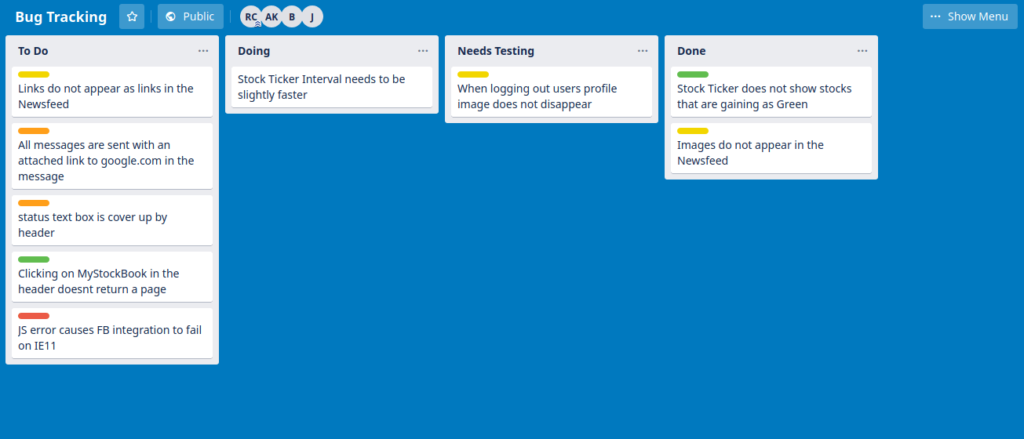As a software developer, you might think that your technical skills are the only things that matter when it comes to succeeding in your career. However, while technical skills are certainly important, there are also several non-technical skills that every developer needs to work on. In this blog post, we’ll discuss five crucial non-technical skills that can help you become a more effective and well-rounded developer.
Communication Skills

Good communication is critical for any team, and developers are no exception. As a developer, you’ll need to communicate with other developers, project managers, and clients. This requires being able to explain technical concepts in a way that is easy to understand, asking for clarification when necessary, and providing feedback constructively. Communication skills can help you build relationships, avoid misunderstandings, and facilitate collaboration.
Time Management
As a developer, you’re often expected to handle multiple tasks and projects simultaneously. This can be overwhelming, especially if you don’t have effective time management skills. To ensure that you meet your deadlines and deliver high-quality work, you need to be able to prioritize tasks, estimate how long each task will take, and manage your time effectively. In this blog post, we’ll discuss the importance of time management skills for developers and provide tips on how to improve them.
Time management skills are essential for developers for several reasons. Here are some of the most important ones:
- Avoiding Burnout: When you’re constantly working on multiple projects simultaneously, it’s easy to get overwhelmed and burned out. Good time management skills can help you prevent burnout by ensuring that you’re taking breaks, prioritizing your tasks, and working efficiently.
- Increased Productivity: When you manage your time effectively, you can get more done in less time. This can help you increase your productivity and achieve better results.
- Meeting Deadlines: Developers are often expected to deliver projects on time. Good time management skills can help you meet your deadlines and deliver high-quality work.
Here are some tips to help you improve your time management skills as a developer:
- Set Priorities: Start by identifying your most important tasks and projects. Prioritize them based on their urgency and importance.
- Estimate Time: Estimate how long each task will take and schedule your time accordingly. Be realistic and give yourself some buffer time in case things take longer than expected.
- Create a Schedule: Use a calendar or planner to create a schedule for your day or week. Block out time for each task and project, including breaks.
- Avoid Multitasking: Contrary to popular belief, multitasking doesn’t actually help you get more done. Instead, it can lead to distractions and decreased productivity. Focus on one task at a time and complete it before moving on to the next one.
- Take Breaks: Taking breaks is essential for preventing burnout and staying productive. Take short breaks throughout the day to recharge and avoid getting overwhelmed.
- Learn to Say No: As a developer, you may be asked to take on more projects than you can handle. Learn to say no to projects that you don’t have time for or that aren’t a good fit for your skills.
Problem Solving Skills

As a developer, you’ll encounter problems frequently. The ability to identify problems, analyze them, and develop effective solutions is critical. Good problem-solving skills can help you avoid errors, improve code quality, and deliver better results. When encountering a problem, break it down into smaller parts and identify what you can solve first. Then, once you’ve solved those smaller parts, you can move onto the larger problem.
A Habit of Documenting

Developers write code, so why do we need to know how to document? These are just a few reasons you need to work on your documentation skills.
Requirements
As covered previously, requirements is an important list or document detailing what the software program should do according to the needs of the end users. Being able to write these down in a clear and actionable manner is a skill in itself. As you get used to documenting requirements, you’ll become better at capturing the key functions that need to be monitored throughout the development process.
Bug tracking
“The program crashes occasionally, needs fixing” – What a lovely explanation right?
Well no. When reading bug reports, what’s worse than getting a bug reported is not knowing where to start with the investigation. Documenting the details is important when reporting bugs.
What version are you using? What were you doing when the program crashed? How many times has it happened? Do you have logs from the program at the time of crash?
Get used to writing detailed reports of issues you come across.
Usage documents
It might not be fun for everyone to write, but all those READMEs you rely on to tell you exactly how to build, use or run source code you come across on the web are as important as the source code itself. No one wants to waste time figuring out how to do something that could be explained in a document which is not that difficult to put together.
Code comments
Comments are valuable for several reasons. If you treat your comments as part of the documentation process you can pay more attention to writing useful comments. This makes things easier for someone else reading your code, and for yourself, when you need to revise your code in the future.
Place comments under the skill of documentation because if planned well, comments can form part of official documentation.
When you see a neatly documented API reference manual that clearly explains a function, it’s parameters and return values, that’s a result of someone taking the time to write comments carefully.
Documentation in the context of development is mainly about ensuring others and your future self have enough information to pick up the project.
An Attitude of Continuous Learning

While the skill of learning to program is certainly technical in nature, it takes a skill in itself to have the mindset of continuing to develop those skills.
Technologies are constantly evolving and we need to keep up to date. You might also find yourself learning a new framework for every new project you start because that’s what’s needed to deliver.
There are two main factors I believe are crucial when it comes to continuous learning.
First, it’s important to have an openness to learn.
To avoid becoming stagnant in your skills, the willingness to actually learn new things is important. If you don’t already have this mindset, start working on it. It comes as part of the package of being a developer.
Second, be aware that the discipline of self-learning is crucial.
When you accept that you need to learn, how do you actually achieve this? Some organisations may have workshops or send developers to training courses to get them up to date on a particular technology, framework or programming language.
However, this isn’t always the case and more than likely you need to learn new skills without formal training.
If you work as a solo developer this is something you have to take the initiative on yourself. Whether you work solo or for an organisation, it’s important to know how to teach yourself new skills and technologies.
This goes for both technical and non-technical skills by the way. Learn to develop both, and learn to take the initiative to do so yourself.
There are more than enough resources available on the internet, whether paid or free, and you just need to make use of it.
Just by reading through this post you’re already taking the initiative to learn!
In conclusion, technical skills are certainly important for developers, but they’re not the only things that matter. Non-technical skills are also critical for success. By working on these skills, you can become a more effective and well-rounded developer, and set yourself up for long-term success in your career.

At Gulf Tech Jobs , our mission is to foster the growth of the tech industry in the GCC by providing a dedicated platform for job seekers and employers. We aim to bridge the gap between talent and opportunities, supporting the region’s digital transformation.
My brother suggested I might like this blog He was totally right This post actually made my day You can not imagine simply how much time I had spent for this info Thanks